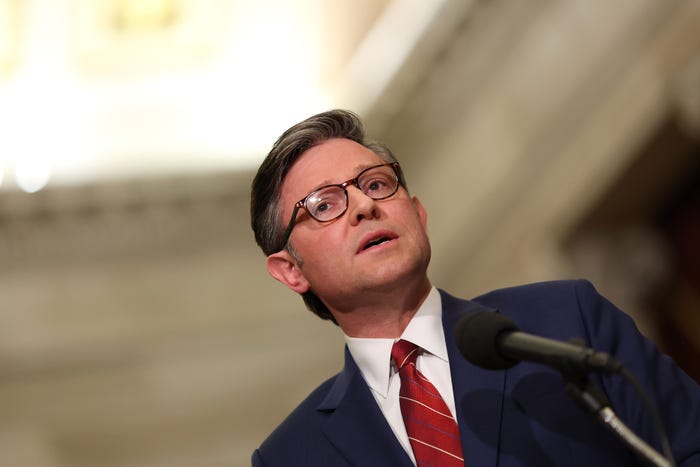Top Stories
Congress Members’ Salaries Frozen at $174,000 for Another Year

UPDATE: Members of Congress will NOT receive a pay increase this year, with salaries remaining frozen at $174,000 after President Donald Trump signed a crucial bill to fund the government. This decision, confirmed today, continues a trend that has persisted since 2009, impacting the financial landscape for lawmakers.
The newly passed legislation includes a provision that blocks a cost-of-living adjustment for Congress, a measure that many federal employees receive annually. This move follows a history of salary stagnation that critics argue hinders attracting qualified candidates to public office. The funding bill only ensures government operations through January 30, but it secures the legislative branch’s budget for the entire fiscal year ending September 30, 2024.
In a climate where many Americans faced job uncertainties and financial strain during the recent government shutdown, lawmakers’ reluctance to increase their own salaries could be viewed as a necessary political gesture. Rep. Andrew Clyde of Georgia remarked earlier this year, “I would like to see how well that would go over if we did that to all federal employees,” highlighting the sensitivity surrounding pay raises in Congress.
The decision has sparked discussions among lawmakers from both parties regarding appropriate compensation. House Speaker Mike Johnson, who earns $223,500, acknowledged that the stagnant salary might deter qualified individuals from pursuing a career in public service. “Over time, if you stay on this trajectory, you’re going to have less qualified people who are willing to make the extreme sacrifice to run for Congress,” Johnson stated.
The situation has also garnered attention from progressive leaders like Rep. Alexandria Ocasio-Cortez of New York, who emphasized the need for working-class representation in Congress. “If we want working class people who don’t rely on independent wealth to represent people in Congress, we have to make it work,” she said.
If Congress had not blocked cost-of-living adjustments for the past 16 years, lawmakers’ salaries would have increased to approximately $221,600, according to the Congressional Research Service. The ongoing freeze raises concerns about the ability of Congress to attract diverse voices and maintain effective governance.
Last year, lawmakers nearly saw a modest pay increase of up to $6,600, but it was ultimately halted due to significant opposition from high-profile individuals, including Elon Musk, who argued against the proposed raise.
As lawmakers continue to grapple with their compensation, this freeze underscores the challenges facing Congress in balancing public perception with the need for fair remuneration. The implications of maintaining stagnant salaries may resonate beyond Capitol Hill, influencing who is willing to step up for public service in the coming years.
Stay tuned for updates as this story develops and further discussions unfold in Congress regarding compensation and public service.
-

 Science1 month ago
Science1 month agoIROS 2025 to Showcase Cutting-Edge Robotics Innovations in China
-

 Lifestyle1 month ago
Lifestyle1 month agoStone Island’s Logo Worn by Extremists Sparks Brand Dilemma
-

 Science2 weeks ago
Science2 weeks agoUniversity of Hawaiʻi at Mānoa Joins $25.6M AI Initiative for Disaster Monitoring
-

 Health1 month ago
Health1 month agoStartup Liberate Bio Secures $31 Million for Next-Gen Therapies
-

 World1 month ago
World1 month agoBravo Company Veterans Honored with Bronze Medals After 56 Years
-

 Health1 month ago
Health1 month agoTop Hyaluronic Acid Serums for Radiant Skin in 2025
-

 Politics4 weeks ago
Politics4 weeks agoJudge Considers Dismissal of Chelsea Housing Case Citing AI Flaws
-

 Lifestyle1 month ago
Lifestyle1 month agoMary Morgan Jackson Crowned Little Miss National Peanut Festival 2025
-

 Science1 month ago
Science1 month agoArizona State University Transforms Programming Education Approach
-

 Business1 month ago
Business1 month agoTruist Financial Increases Stake in Global X Variable Rate ETF
-

 Sports1 month ago
Sports1 month agoYamamoto’s Mastery Leads Dodgers to 5-1 Victory in NLCS Game 2
-

 Top Stories1 month ago
Top Stories1 month agoIndonesia Suspends 27,000 Bank Accounts in Online Gambling Crackdown









